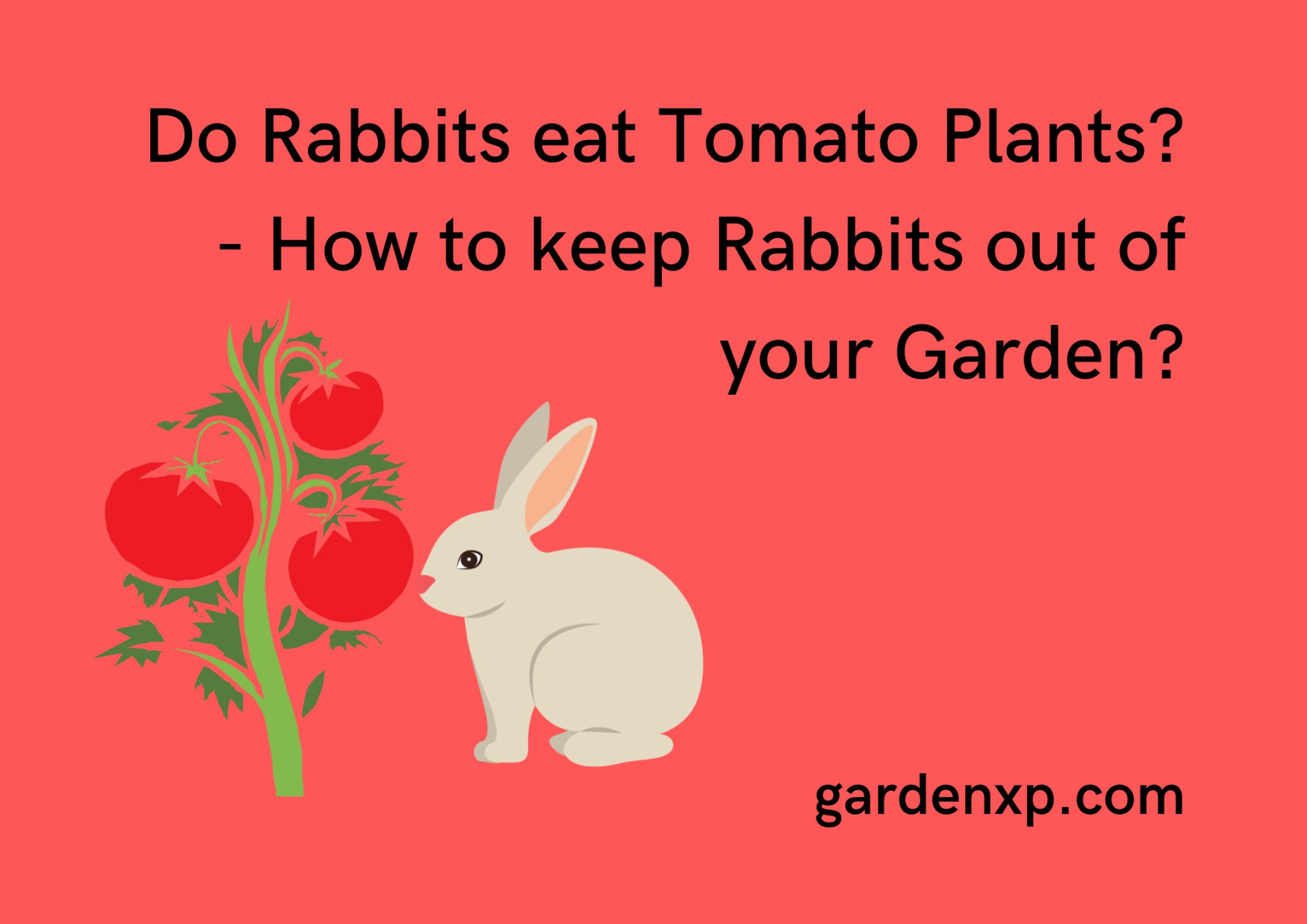Will Rabbits Eat Tomato Plants?
Tomato plants are a popular choice for many gardeners due to their delicious fruits and easy cultivation. However, one concern that gardeners often have is whether rabbits will eat their tomato plants. In this article, we will explore the feeding habits of rabbits and provide some tips on how to protect your tomato plants from these furry creatures.

Rabbit Feeding Habits
Rabbits are herbivores and primarily feed on plant materials such as grass, leaves, and vegetables. While they do have preferences for certain plants, rabbits will generally consume a wide variety of vegetation to meet their nutritional needs.
Do Rabbits Eat Tomato Plants?
Unfortunately, tomato plants are not immune to rabbit nibbling. Rabbits are known to enjoy the taste of tender young leaves and stems, and tomato plants provide a tempting treat for them. The leaves of the tomato plant are particularly vulnerable to rabbit feeding, as they are typically the most tender and palatable parts of the plant.
Protecting Tomato Plants from Rabbits
If you want to keep your tomato plants safe from rabbit damage, there are several measures you can take:
- Fencing: Installing a fence around your garden or individual tomato plants is one of the most effective ways to keep rabbits out. The fence should be at least 2 feet high and buried at least 6 inches below the ground to prevent rabbits from burrowing underneath.
- Repellents: There are various rabbit repellents available in the market that can be sprayed on or around tomato plants. These repellents have strong odors or tastes that rabbits find unpleasant and may deter them from feeding on the plants.
- Netting: Placing fine mesh netting around your tomato plants can also provide protection against rabbits. Make sure the netting is securely fastened to prevent the rabbits from squeezing through any gaps.
- Companion Planting: Some plants, such as marigolds and garlic, have strong odors that rabbits dislike. Intercropping these plants with your tomato plants may help deter rabbits from approaching them.
FAQs
1. Are all rabbit species equally likely to eat tomato plants?
No, while most rabbit species have similar feeding habits, there may be variations in their preferences depending on their natural habitat and availability of food sources. It’s always a good idea to research the specific rabbit species in your area to understand their eating habits better.
2. Do rabbits only eat tomato leaves, or will they also eat the fruits?
Rabbits are primarily attracted to the tender leaves and stems of tomato plants. However, if they are hungry or the plant is damaged, they may also nibble on the fruits. It’s best to protect both the leaves and fruits of your tomato plants from rabbit damage.
3. Are there any natural ways to deter rabbits from tomato plants?
Yes, there are some natural methods you can try to deter rabbits. For example, you can sprinkle cayenne pepper or garlic powder around the plants, as rabbits dislike the strong smells. Additionally, planting thorny or prickly plants near your tomato plants may discourage rabbits from approaching.
4. Can rabbits be beneficial to tomato plants in any way?
While rabbits may inadvertently contribute to seed dispersal by eating tomato fruits and spreading the seeds in their droppings, their feeding habits can cause significant damage to the plants. It’s generally advisable to protect your tomato plants from rabbit feeding to ensure a healthy harvest.
In conclusion, rabbits do have a tendency to eat tomato plants, particularly the leaves and stems. However, with the right protective measures in place, you can enjoy a bountiful tomato harvest while keeping these furry intruders at bay. Whether it’s through fencing, repellents, netting, or companion planting, there are various options available to safeguard your tomato plants from rabbit damage.
Related Articles…
Copyright Notice:
All images on this website are obtained from the internet and remain copyrighted to their original owners. If you hold copyright to any image and want it taken down, please reach us.